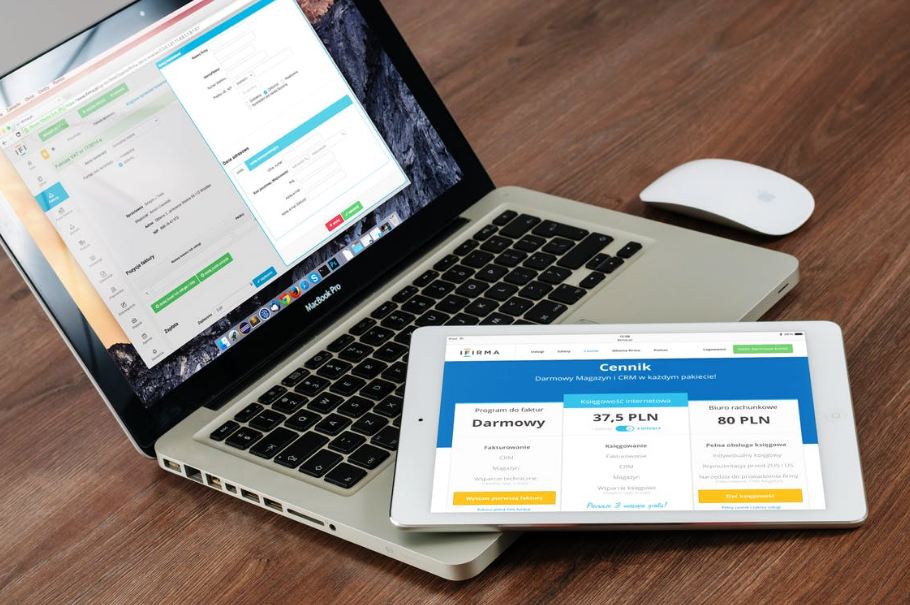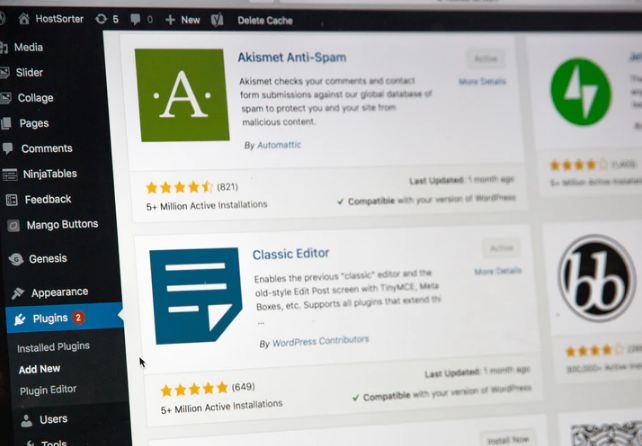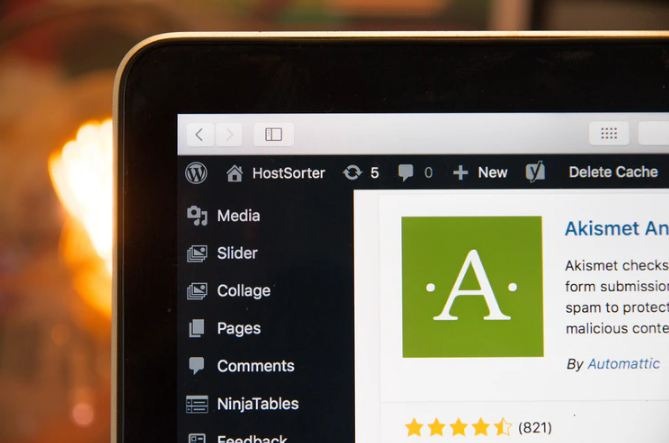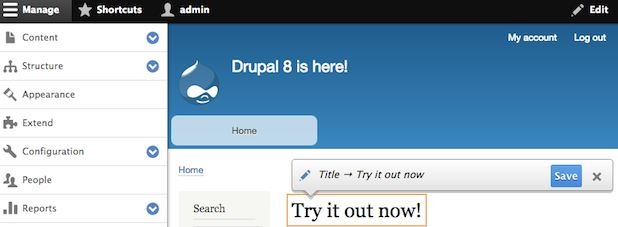Drupal and WordPress are two of the most popular Content Management Systems (CMS) in the world. But when it comes to choosing the best one among these two, it all depends on your short and long-term goals. If you are looking for an open-source and user-friendly solution to all your web problems, either of these platforms will do. To help you decide better, we have put together this guide so you can easily choose the best CMS for your business.
Let’s get started with simple stats first.
Stats
Although Drupal has been around for longer than WordPress, it still covers only 2% of websites than WordPress that covers more than 40% (source). Seeing these stats, you might wonder why we are even comparing these two platforms with so much difference in user base. Well, regardless of popularity, both platforms have some pros and cons that one should know before opting for a CMS for his business.
Differences
1. Functionality
Drupal is more complex than WordPress, but it is because it has a lot of advanced functionalities to offer. So, basically, the preference to choose one between these two platforms comes down to your needs and requirements.
Drupal’s functionalities go much deeper, but if you don’t know how to utilize them, the platform will be a lot confusing for you. Drupal consists of blocks, taxonomies, content types, views, and more. Although all these advanced functionalities create a learning curve, ultimately, Drupal provides much more power and control to its users.
If you are looking for multiple content types and page templates, Drupal is better suitable for you as it is equipped to handle all your needs. Moreover, Drupal’s user permissions are also more advanced compared to WordPress.
In short, Drupal was designed by developers for developers, so if you are new to the world of CMS and don’t know how it works, Drupal might not be the best option for you. On the other hand, WordPress is easy to use, and one can easily get started with minimum knowledge.
2. Mobile Theme or Mobile Development
If your site needs a dedicated mobile theme, both WordPress and Drupal have great starter themes to quickly publish your site. As far as content editing on the mobile app is considered, we recommend WordPress because it has a native mobile application. If you are running a blog on WordPress, its app is awesome to publish or make quick changes to your blogs in real-time.
On the other hand, Drupal doesn’t yet have a native app, but that doesn’t mean it can’t be managed via a mobile. Drupal 8’s admin panel is quite responsive and uses a solid mobile-first strategy.
- Admin Experience
Compared to WordPress, Drupal provides a cleaner admin experience for content editing. Whereas in WordPress, one can use the Advanced Custom Fields to make his overall admin experience quite cleaner.
- Theme Market
There are thousands of themes available to use for free in WordPress. On the other hand, Drupal also offers several starter themes, such as the Adaptive Responsive theme.
3. Flexibility
WordPress offers a wide variety of free plugins and themes to use on your site and enhance its functionality. Drupal also has several starter themes, but the platform is basically designed for custom development.
Most people opt for WordPress because of its flexibility, ease of using free plugins and themes. Drupal’s plugins are called modules, which are also available for free and offer almost similar functionality as WordPress plugins. However, the major difference between these platforms is that you need a developer to handle installing or updating Drupal modules. But in WordPress, you can do it yourself.
WordPress was basically developed as a blogging platform. It doesn’t have that much ability as Drupal to handle large volumes of content. Moreover, the latest updates in Drupal 8 have also improved most of its features, including page performance and caching that help the page load faster. All in all, Drupal is much more robust for handling complex tasks compared to WordPress
4. Ease of Use
Drupal isn’t hard to use, but it can be difficult to learn, especially as a beginner. It requires more technical knowledge, but you are capable of creating more advanced sites using Drupal. On the other hand, if you have limited knowledge of CMS platforms and website development, WordPress is the best option.
Often, a developer will create a site on WordPress and then hand it over to the client for further site management. With minimal knowledge, you can set up your blog in WordPress in minutes. It features a WYSIWYG editor and drag-and-drop functionality that makes everything easier, especially blogging.
Both WordPress and Drupal have active user communities to answer all your queries related to the platforms and their functionalities. With the release of Drupal 8, the platform became convenient for non-developers as well by including content authors and site builders.
5. Usage
As already mentioned above, WordPress has a bigger community of users compared to Drupal; there are more options and help available related to WordPress. The popularity of WordPress suggests that it is user-friendly and can address a broad base of individuals and organizations. However, this popularity has also led WordPress to be a more frequent target for hackers.
6. Ecosystem
Both Drupal and WordPress have large multi-lingual communities of contributors and users. The users, including developers and designers, are continuously creating new themes and plugins to help you customize your website in the best way possible.
WordPress has more than 58,000 plugins and 3,300 themes, with both paid and free options. On the other hand, Drupal also has more than 46,000 modules and 3,000 themes. Both platforms support a wide array of third-party applications and services, including APIs. For example, both support integration with Facebook, Salesforce, Google Analytics, Mailchimp, and many more. And if you need to generate documents while using Salesforce CRM, check out Salesforce doc gen.
Drupal and WordPress developers continually update their respective platforms’ core code while adding new features to increase usability. Therefore, whichever platform you choose, you will not find any feature lacking in either of them.
7. Security
Security is one of the most important factors for both individuals and organizations running their sites on Content Management Systems like WordPress or Drupal. Drupal has enterprise-level security and also provides in-depth security reports. This is why you will find high-level sites, such as whitehouse.org, using Drupal.
However, if you are still using Drupal 6, then you might be vulnerable to various security threats because the developers have shifted their focus in the development of Drupal 7 and Drupal 8. So, the best way to update your security level is to shift from Drupal 6 to Drupal 8 right now.
When talking about the security of WordPress, you will see that this platform has traditionally been vulnerable to hackers and a lot of security threats. Many plugins that make WordPress so powerful may also open up your site to potential problems.
Overall, both platforms are secure on their own terms. However, due to the way websites are built, extended, and customized on these content management systems, Drupal wins the security battle with a margin. If you think that WordPress’s core code makes it vulnerable to hacks and attacks, this is not the case. The actual problem is the themes, plugins, and user habits that open up your site to malware and security threats.
8. Customization
WordPress themes/plugins and Drupal modules/starter themes give you a plethora of options for customizing your sites just the way you want. Besides using these templates and extensions, you can also create your own secure and much better themes and plugins to meet your needs.
While both platforms are best known for their power of customization, Drupal has a plus point for supporting extensive customization. Besides altering the available modules, you can also create custom content types, alter content taxonomy, and do so much more with the help of Drupal’s built-in capabilities.
9. Deployment
Both platforms offer a wide range of deployment options. For instance, you can choose to install the platform through your hosting provider or any other cloud provider. Besides that, you can also work offline, and when the site is finalized on both your and your client’s end, you can deploy it. Moreover, you can install either platform on a LAMP-based virtual server if you want to install it in your own enterprise-level environment.
The LAMP (Linux, Apache, MySQL, and PHP) is mostly used for supporting websites.
10. Cost
While both Drupal and WordPress are available free to download and install, there may be different costs at some points. If you are looking to make a site on Drupal and want its developer, then don’t be surprised when they ask for a higher development price. This is because there are fewer of them out there compared to WordPress developers. On the other hand, you may have to pay for some plugins or themes that better suit your site’s requirements.
Overall, Drupal is more powerful and flexible. If your project is in the right hands, you can easily create unique and reliable solutions to meet your exact needs. However, if you only want to create a simple site for a small business or a blog, WordPress is the most convenient.
Making a Choice
Whatever platform you choose, it all comes down to these simple questions: What are your requirements, and what are you trying to achieve? The right CMS for your business will be the one that ticks all the boxes, such as budget, functionalities, ease of use, customization, etc.
Here is a cheat sheet to help you quickly decide which platform to go for:
- Have a low Initial Investment? Go for WordPress.
- Want fastest Set Up? Go for WordPress.
- Is security your key requirement? Go for Drupal.
- Looking for a Robust and Complex Solution? Go for WordPress.
Roadmaps
Drupal Roadmap
Although Drupal 9 was released back in June 2020, it’s a continuation of the fully-tested, stable codebase, none other than Drupal 8. If you are using Drupal 8 or plan to make a site on Drupal 8, you are on the right path.
However, if you are on Drupal 7, rest assured that it will officially be supported until November 2022. So, you don’t need to move your site to Drupal 8.
At the time of writing this article, Drupal’s roadmap includes:
- Automated updates
- Admin UI & JavaScript Modernization
- Composer Support in Core
- Configuration Management 2.0
- New Front-End Theme
- Resolve critical blockers for workspaces becoming stable
WordPress Roadmap
At the time of writing this article, the WordPress roadmap includes:
- Creating a block for navigation menus.
- Upgrading the widgets-editing areas and the Customizer to support blocks.
- Providing a way for users to choose the automatic plugin and theme updates.
- Providing a way for users to choose automatic updates of major Core releases.
- Building a WordPress.org directory to discover blocks and a way to install them easily.
- Providing a way for themes to visually register content areas and expose them in Gutenberg.
- Forming a Triage team to tackle our 6,500 open issues on Trac.
Conclusion: Drupal vs. WordPress
We hope now you have a better understanding of each platform and how they differentiate from each other. In easy words, Drupal offers more security options and a lot of features out of the box, including page caching, but WordPress is highly stable and has much more resources. So, if you want to create a highly-secured site with a lot of customization, Drupal is for you.
While Drupal is for professionals who know their way around complex things and technicalities, WordPress is targeted towards DIY users who can easily create their blogs and sites for small businesses. Therefore, by using the right combination of themes and plugins, you won’t find anything easier and convenient than WordPress.














